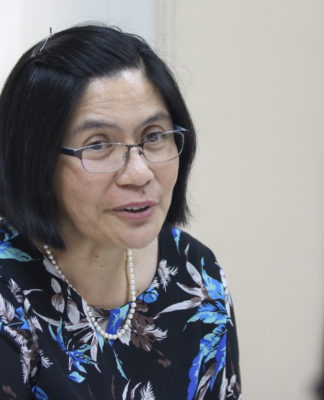THE UST Health Service has advised Thomasians to abstain from sexual encounters to “best” prevent sexually transmitted diseases (STDs).
But Health Service Director Dr. Ma. Salve Olalia said her memorandum dated March 8 had nothing to do with the recent findings of the government’s Integrated HIV Behavioral and Serological Surveillance that reported rising STD cases in age bracket 18 to 25 years old.
“[The memo on STD] has long been a topic of our wellness conventions under USTeps to Wellness: Fit@400 [project],” Olalia said. “It’s part of information dissemination.”
She said her office has so far not recorded a single case of STD involving a Thomasian.
“In case there will be one, full medical care will be rendered according to the student health care package,” she added.
Olalia said information about STDs is still the best defense.
“Remember that diseases are preventable,” she advised Thomasians. “Carriers of these dreaded diseases are initially symptom-free.”
The Integrated HIV Behavioral and Serological Surveillance had reported that HIV cases went up to 530 people per 100,000 population from 99 per 100,000 in 2007. High-risk individuals include female sex workers, sexually active homosexual men, call center agents, and drug users who share and re-use needles.
But a UST Hospital doctor had said the proportion of HIV-infected people with the population was not “high enough,” debunking a recent claim by a Philippine General Hospital doctor that cases of people who have human immunodeficiency virus has reached “epidemic” level in the Philippines.
‘Pressure’ food owners
In the same memo, Olalia said students should look for health permits of food establishments and health certificates of food servers to avoid food poisoning.
“If students will look for these, the owners will be pressured to comply with [the government requirements on food safety],” she said, adding that contaminated food may lead to serious illnesses such as Hepatitis A and Typhoid fever.
Olalia pointed to “food adventurism” amid the proliferation of street food outside the campus.
Arnel Ladrera, 29, who has been selling isaw (fried chicken intestine) for three years along Dapitan Street, said that so far, he has not encountered complaints among Thomasian customers of getting sick after eating his food.
“I properly clean the isaw before selling them, also, I sell new and fresh ones every day,” Ladrera said in Filipino.
Jocelyn de Lara, 26, said her newly opened eatery along Dapitan Street has yet to secure a health permits from authorities.
“I have no problem with the memo. It was a good measure, but on our part, we observe proper cleanliness in food preparation, you could even check our kitchen,” she said.
The recent memo also gave tips on how to avoid heat stoke amid the El Niño phenomenon like: avoid intake of alcohol and caffeinated drinks; avoid too much exposure under the sun; and drinking more than eight glasses of water a day. Cliff Harvey C. Venzon













